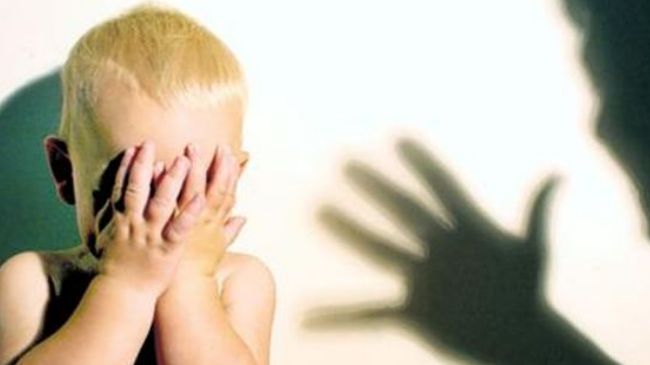Turkey has made progress on children’s rights in the last 10 years, but many of the measures remain purely on paper, according to legal experts who cite violations of the rights of children charged under anti-terror laws.
The plight of children has dominated the Turkish media in recent weeks, especially with the deaths of three teenagers hit by an Istanbul tram and other tales of child poverty. The situation of stone-throwing children in eastern and southeastern Turkey, however, has been most prominent, especially following a parliamentary bill submitted Thursday.
“The child protection system in Turkey is quite ineffectual and unsuccessful. In many areas concerning children’s rights, Turkey fails to fulfill its international legal obligations cited in international conventions,” Şahin Antakyalıoğlu, chairman of the Ankara Bar Association Children’s Rights Center, told the Hürriyet Daily News & Economic Review late last week.
“The major reason is that individuals involved in this system have unfortunately failed to grasp and internalize the essence of the international conventions and child protection system. The measures simply remain [on paper],” said Antakyalıoğlu.
[HH] Criticism from the EU, US
Separate reports released by the European Union and the United States share similar concerns and urge Turkey to take stronger steps to eliminate obstacles toward fulfilling children’s rights.
The EU’s 2009 Progress Report cited Turkey’s juvenile justice system as a major concern in criticizing the lack of juvenile courts and an anti-terror law that treats children participating in demonstrations, particularly in the East and Southeast, as terrorists – with accompanying harsher penalties.
A recent U.S. report on human rights in Turkey also said the juvenile justice system for children who stand accused of terror-related offences, child marriage, the exploitation of child labor and minors’ access to education and health are major problems.
The government is preparing to change the anti-terror law for the children accused of crimes under its scope, yet Antakyalıoğlu said merely reducing the penalties for stone-throwing children and sending them to juvenile court is insufficient, arguing that Turkey violates the U.N. Convention on the Rights of the Child – to which it is a signatory on the issue.
“The children can be tried in juvenile courts, but it is useless unless they are totally excluded from the scope of the anti-terror law. They shouldn’t be deemed as terrorists and they should be judged only for their actions of throwing stones,” he said.
He said numerous commissions have been established in Parliament while legal measures have been taken to solve children’s problems.
“But the legal measures remain on paper and commissions take action only after incidents take place,” he said. “You can still, for instance, come across handcuffed children in courthouses even though it is illegal. Or the children subjected to sexual abuse aren’t accompanied by a social service expert or psychologist during their medical examination despite the legislation because of a lack of personnel.”
The rights of children who experienced natural disasters are similarly ignored or violated, he said. “Even if accommodation is provided, their right to education or health is ignored. Child labor is against the law, but it still exists. The government has no right to offer excuses like a lack of personnel or financial sources in addressing the problems,” he said.
[HH] Basic violation in judiciary
The failure to implement the U.N. convention occurs in the judiciary, according to Türkay Asma, a lawyer from the Association for the Prevention of Child Abuse and Neglect.
“The judiciary still deems a child as an object, not an individual who has rights,” Asma said. “There is still no course on ‘children’s law’ in the law faculty curricula, for instance. Everyone in the judiciary, from lawyers to judges, should be equipped with the philosophy of the child protection system.”
There were laws to protect children but the problem is with their implementation, Asma said, adding that the lack of coordination between the institutions implementing the measures is crucial problem.
“This task belongs to the Justice Ministry but it has failed to do the job,” she said. “Beatings are still happening at schools, there is gender inequality in access to education and even no support center for children who face exploitation. There is no holistic approach to these problems.”
[HH] No proper data collection mechanism
One of the biggest problems is the lack of a data collection mechanism concerning the situation of children, according to experts. Every institution compiles its own data and the available data is often old and incomplete.
Arguing that the a lack of relevant data makes understanding the problems more difficult, Adem Arkadaş of the International Children's Center, or ICC, said there was an urgent need to establish a proper rights-based data collection mechanism.
Turkey has made improvements in children’s rights in many areas as part of its EU bid, he said. “However, many of the reforms are yet to be implemented and some reforms adopted since 1999 have remained only [on paper].”
The U.N. convention’s obligations should be included in domestic law, he said, as should a children’s ombudsman.
[BOX]
[HH] Children face trouble in Turkey
There are 2,622 children in prison with 1,440 of them housed in the same institution as adult prisoners, a 2008 Justice Ministry report said.
A total of 1,056 children who participated in demonstrations in the Southeast between the age of 12 and 18 were tried in penal courts under the anti-terror law between 2006 and 2007, with 208 being sentenced, the ministry said.
In a child labor survey released in April 2007, the Statistical Institute reported that the number of child laborers between the ages of 6 and 17 was 960,000.
According to the General Directorate of Security, 25,000 children were victims of violence, including sexual assault, in 2004.
Some 71.6 percent of 20,000 children who stay in the Social Services and Children Protection Institution, or SHÇEK, centers are there because of poverty, a 2007 SHÇEK report said.

kunduchi beach hotel & resort dar es salaam is the most popular one. Book it through roomsxpert.
ReplyDelete